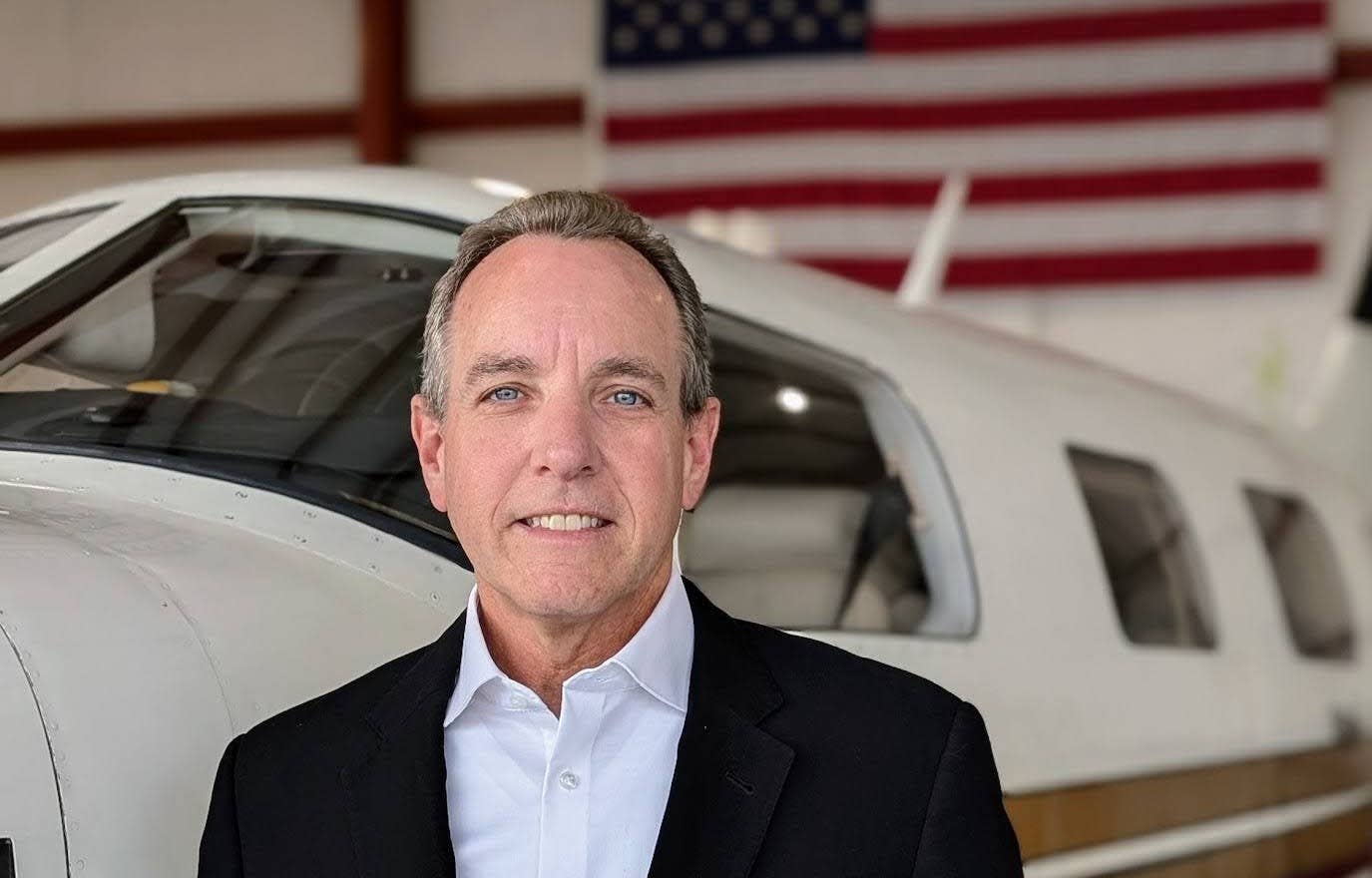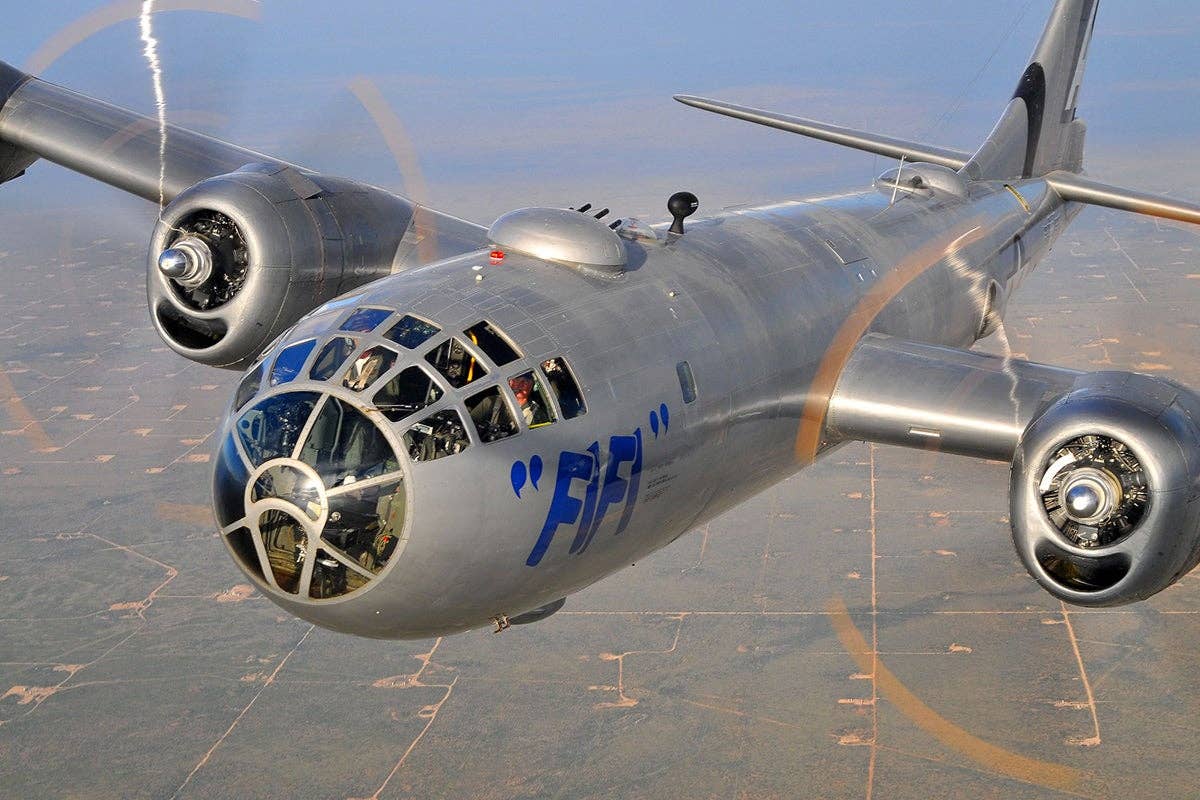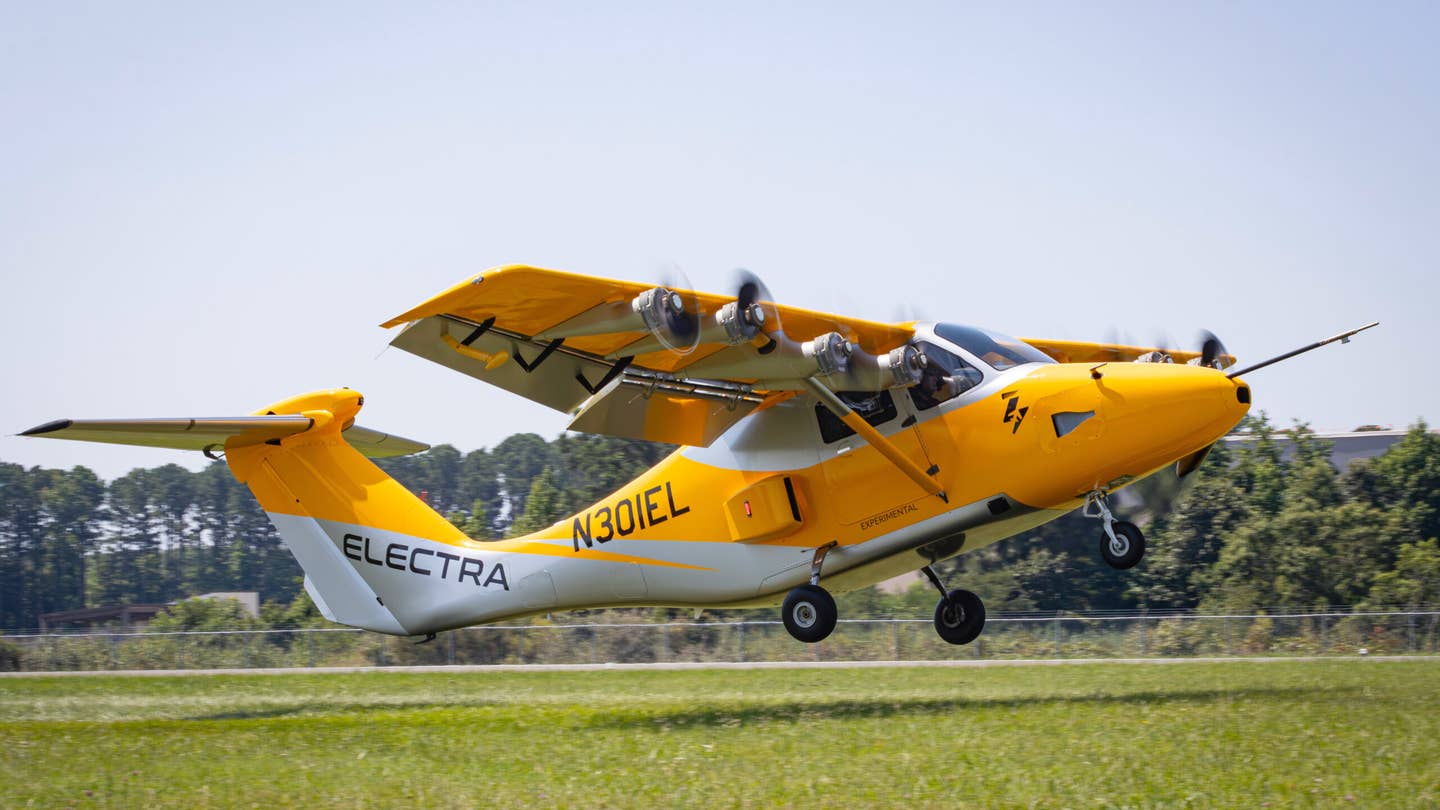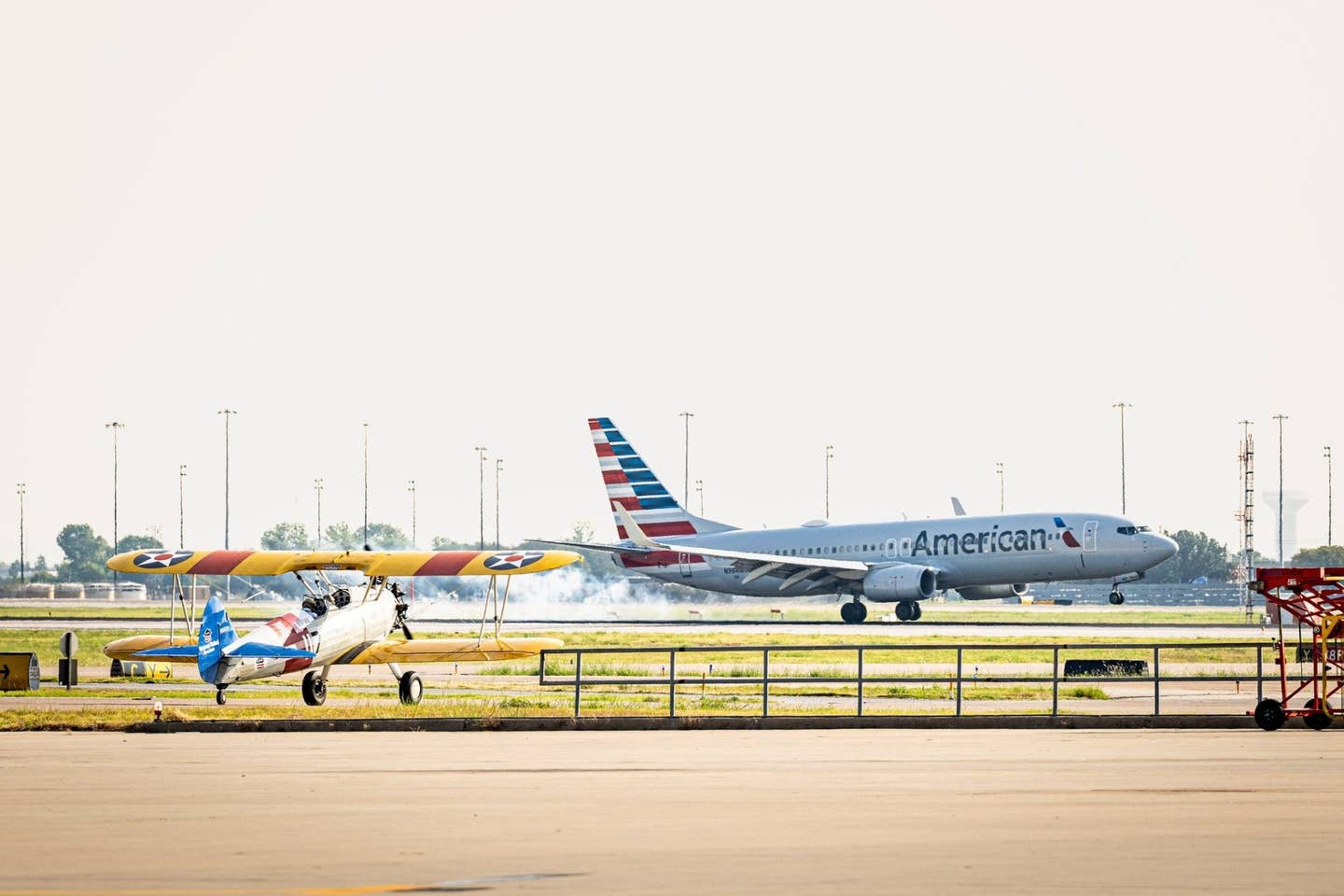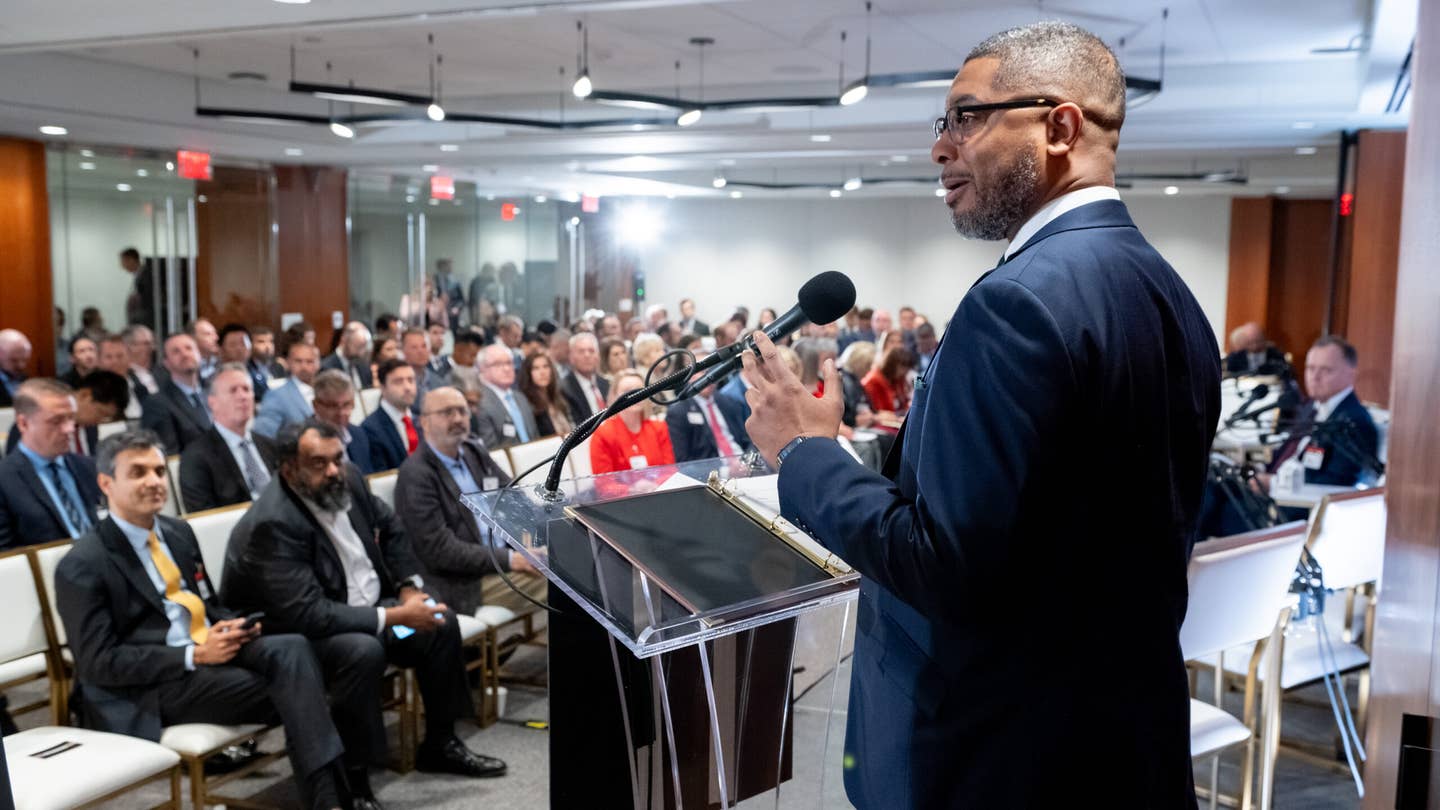Joby Advances to Testing with Production Prototype Air Taxi
Until now, the manufacturer had only performed flight testing with less-developed, preproduction prototypes.
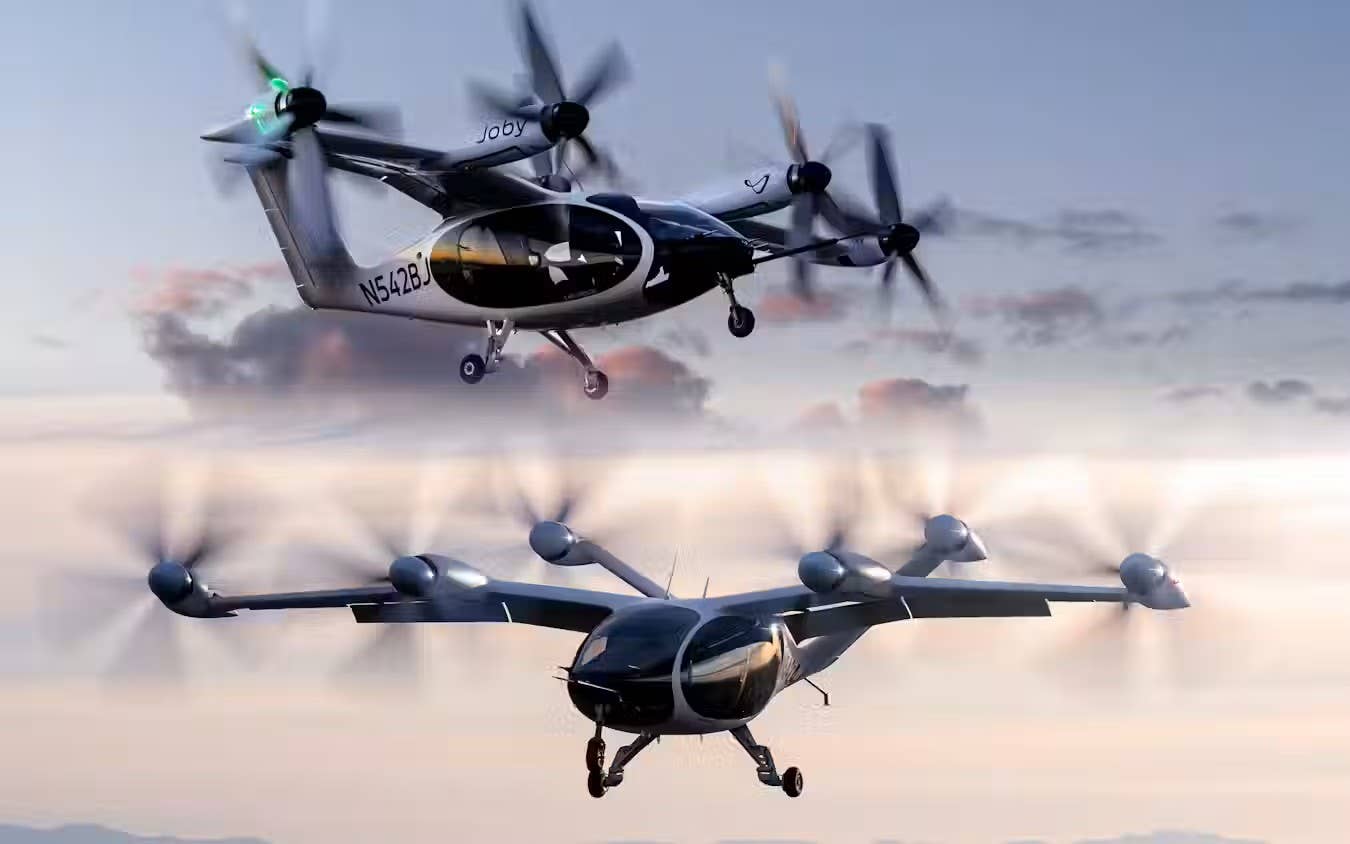
Joby’s two preproduction prototype air taxis together have flown more than 33,000 miles over the course of more than 1,500 test flights, the company says. [Courtesy: Joby Aviation]
After announcing a manufacturing expansion earlier this week, electric vertical takeoff and landing (eVTOL) air taxi manufacturer Joby Aviation is preparing for a critical step in type certification with the FAA.
The company on Thursday said it is moving to the next phase of flight testing using production prototype aircraft, the first of which came off its pilot production line at Marina Municipal Airport (KOAR) in California in June. The company on Monday rolled out a second production prototype. Until now, Joby had only flown tests using two preproduction air taxi prototypes.
So far, the U.S. Air Force is the only Joby customer to operate a production prototype as airmen are deploying the manufacturer’s first model for logistics and other missions during joint testing at Edwards Air Force Base (KEDW) in California. Joby says its second prototype will soon join the first at Edwards and so far has committed to two further aircraft deliveries to MacDill Air Force Base (KMCF) in Tampa, Florida.
Now, though, the manufacturer is ramping up to perform its own production prototype testing ahead of for-credit evaluations with the FAA.
Joby in 2023 completed 30 for-credit tests of the air taxi’s structures and components. But successful for-credit testing of the entire aircraft would represent a key step toward the pinnacle of the eVTOL air taxi industry: type certification.
“Our preproduction aircraft were the second full-scale generation of Joby’s design, and their performance met or exceeded our predictions throughout the program, successfully achieving our targets for maximum range, speed, and a revolutionary acoustic footprint,” said JoeBen Bevirt, founder and CEO of Joby.
The manufacturer’s flagship air taxi is designed for a pilot to fly as many as four passengers on trips up to 100 sm (87 nm), cruising at 200 mph (174 knots). Unlike competitors such as Archer Aviation, Joby will operate the aircraft itself in partnership with Delta Air Lines.
The company is eyeing commercial urban air mobility (UAM) routes in and around large U.S. metro areas, such as New York and Los Angeles, starting in 2025. But that target will hinge on its success in for-credit evaluations.
Joby’s two preproduction aircraft together have flown more than 33,000 miles over the course of more than 1,500 test flights, 100 of which had a pilot on board.
These included the first electric air taxi exhibition flights in New York City in November, when the company’s second preproduction model flew from the Manhattan Downtown Heliport over the Hudson River. Another demonstration in 2021 included a 154.6 sm flight on a single charge.
“Over the past four years, we thoroughly tested and studied our aircraft in flight, from precision landing and outwash to human factors,” said James Denham, chief test pilot for Joby. “We often flew multiple flights per day, demonstrating our ability to fly in a wide variety of weather and operational conditions.”
Since October, the company has been flying preproduction prototypes with pilots on board. That month, four Air Force test pilots completed the eVTOL’s first crewed transition from hover to cruise flight. The crewed test program includes 31 flights over a span of two days, completed at the start of 2024 in partnership with the FAA.
Joby has also entrenched itself with NASA, working with the space agency to evaluate air taxi traffic and noise. The ability for eVTOL aircraft to fly alongside other aircraft at low volume is considered essential for UAM services, which are largely expected to take place over cities.
“Learnings from the flight test program have been invaluable to our certification program and to the broader development of regulatory frameworks around electric VTOL aircraft, validating the performance, safety, and acoustics of our design while providing insight into daily operations and maintenance,” said Bevirt.
Joby competitor Archer Aviation is also looking ahead to for-credit testing. It expects to begin those evaluations later this year following the production of three type-conforming air taxi models, which is already underway.
Like this story? We think you'll also like the Future of FLYING newsletter sent every Thursday afternoon. Sign up now.

Subscribe to Our Newsletter
Get the latest FLYING stories delivered directly to your inbox


